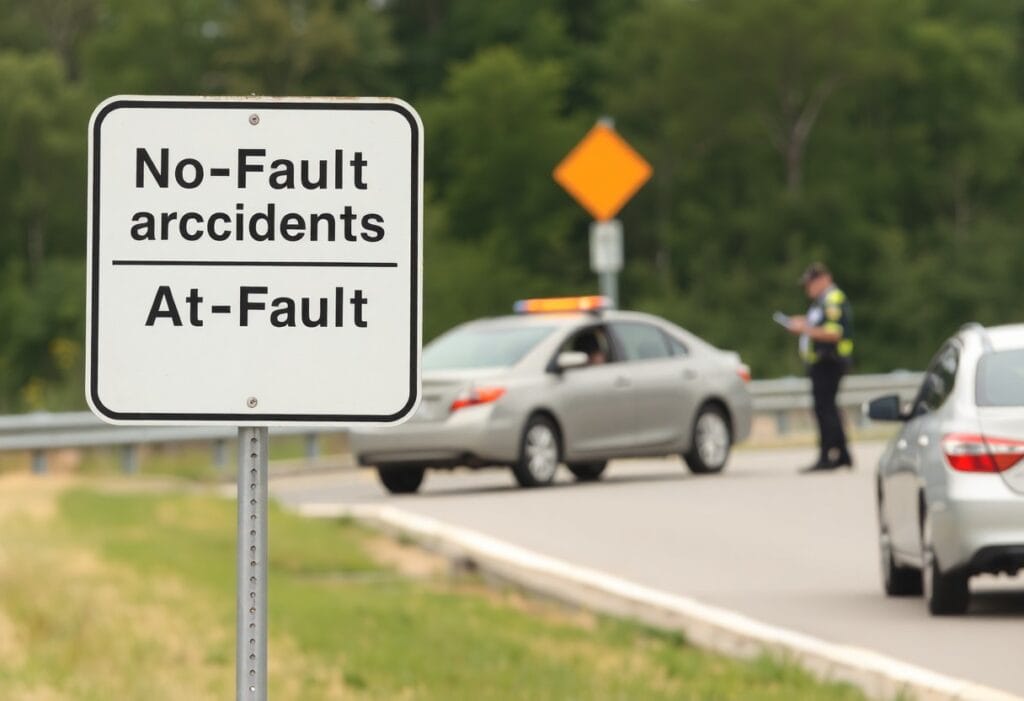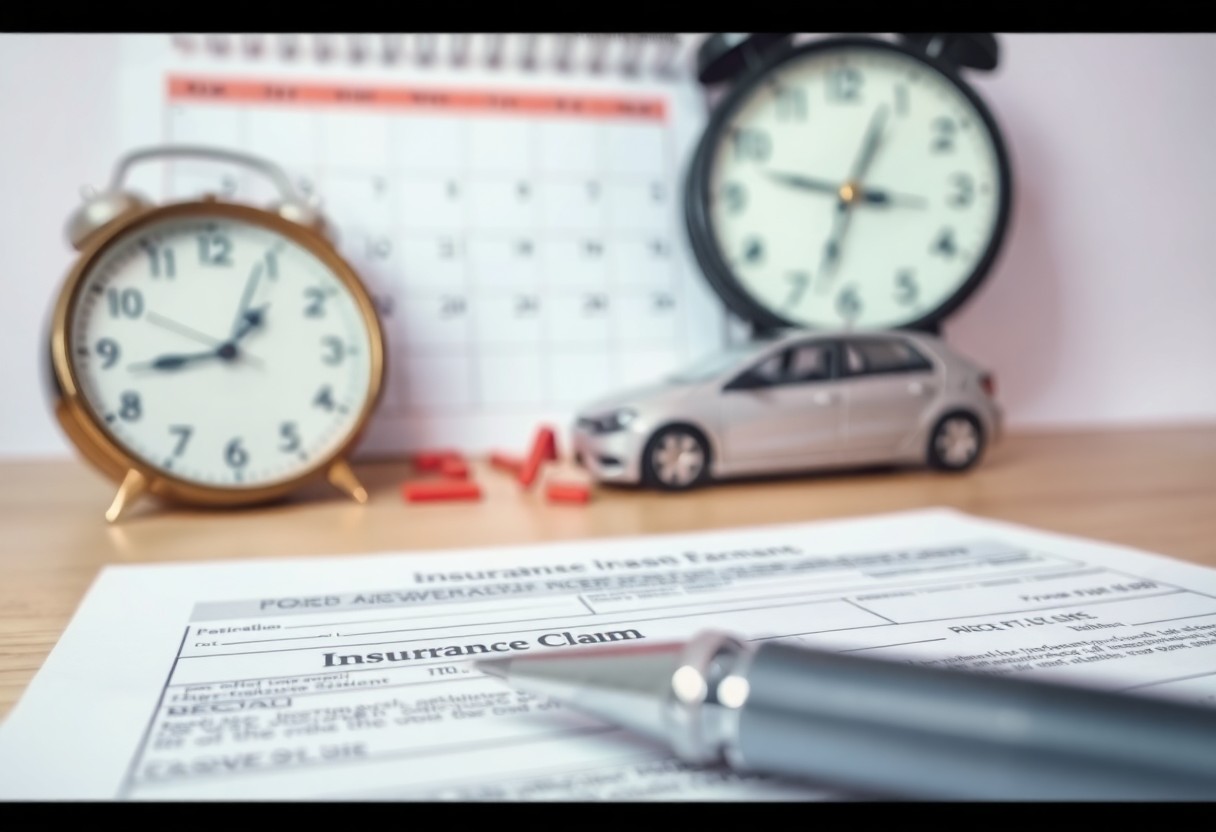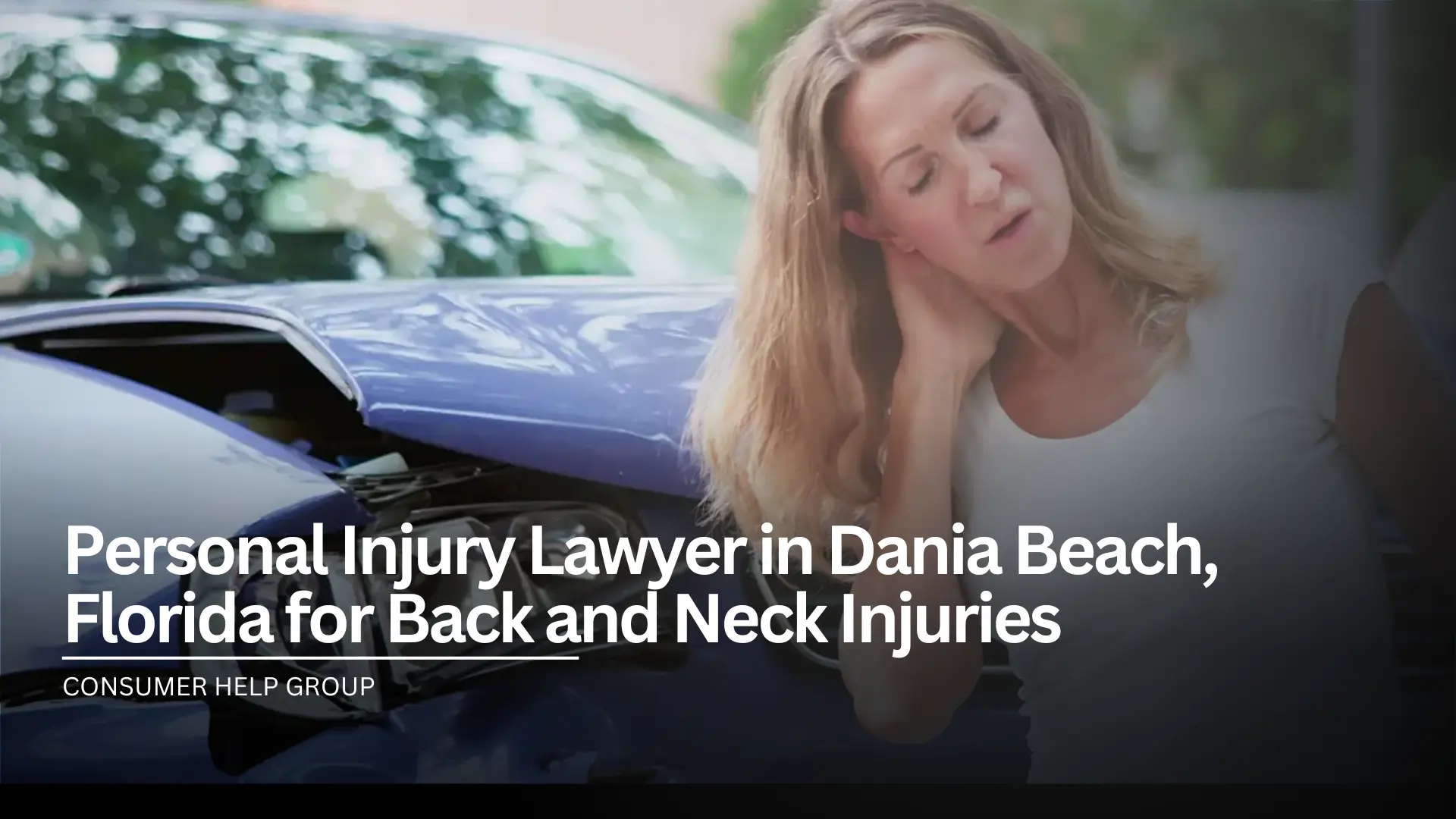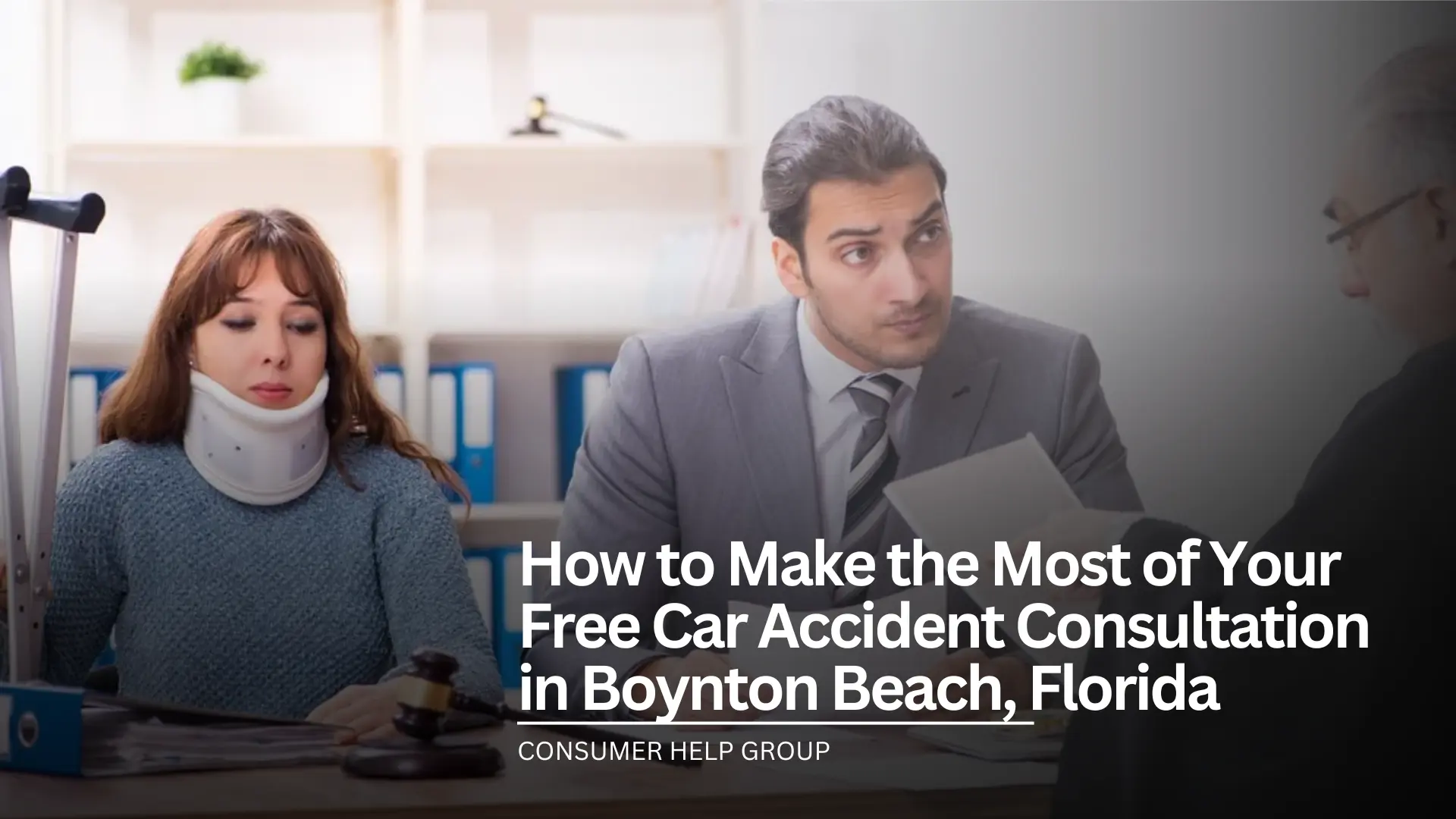It’s vital for you to understand the distinctions between no-fault and at-fault accidents in Alabama to navigate the aftermath of a collision effectively. In a no-fault state, your own insurance typically covers your damages regardless of who caused the accident, while in at-fault cases, the responsible party’s insurance is accountable for the costs. Knowing these differences can influence your financial responsibilities and affect how you file claims. Equip yourself with this knowledge to safeguard your rights and make informed decisions when dealing with accident-related issues.
Key Takeaways:
- No-Fault Insurance: In Alabama, drivers do not have a no-fault insurance system; the state operates under an at-fault liability system, meaning the party responsible for the accident is liable for damages.
- At-Fault Accidents: Fault determination can impact insurance claims and payouts significantly, as the at-fault driver’s insurance typically covers the damages incurred by the injured parties.
- Legal Implications: Understanding liability laws in Alabama is vital, as it can affect your legal rights and responsibilities in the event of an accident, including potential compensation and impact on driving records.
Understanding No-Fault Insurance
While navigating the complexities of auto insurance, understanding no-fault insurance is necessary for Alabama drivers. This type of coverage allows you to file claims with your own insurer regardless of who caused the accident, simplifying the claims process.
Definition and Key Features
About no-fault insurance, you should be aware of its defining characteristics:
- Immediate Coverage: Enables faster access to benefits without needing to determine fault.
- Medical Expenses: Covers your medical costs and those of your passengers.
- Lost Wages: Provides compensation for income loss due to injuries.
- Collision Claims: Reduces the need for lengthy investigations.
- Limited Legal Actions: Restricts your ability to sue the at-fault party, usually only allowing for severe injuries.
After understanding these features, you’ll be better equipped to assess if this coverage suits your needs.
Advantages and Disadvantages
Among the benefits of no-fault insurance are simplified claims processes and quicker access to benefits, enhancing your peace of mind after an accident. However, it also comes with limitations, such as reduced opportunities for legal action against at-fault drivers.
A significant advantage of no-fault insurance is the ability to receive timely medical benefits and income replacement without waiting for investigation results. This can be particularly beneficial for those requiring immediate care or financial support after an accident. On the flip side, the inability to sue other drivers in most cases may leave you feeling vulnerable, especially when facing serious injuries. Additionally, the premiums can vary, affecting your budget. It’s important to weigh these aspects carefully when deciding on your insurance strategy.
Understanding At-Fault Insurance
There’s a significant distinction between at-fault and no-fault insurance that every Alabama driver should grasp. At-fault insurance means that the driver responsible for the accident is accountable for damages and injuries incurred by the other party involved.
Definition and Key Features
After you understand the basics, it’s important to know the defining characteristics of at-fault insurance:
- Liability Coverage: The at-fault driver’s policy covers the damages they caused.
- Claims Process: Insurance claims are filed against the at-fault party’s insurance.
- State Requirements: Alabama mandates drivers to carry liability insurance.
- Impact on Premiums: Premiums may rise if you are found at fault for an accident.
Perceiving the responsibility of at-fault insurance helps you understand its implications on your driving record and future coverage options.
Advantages and Disadvantages
Behind the benefits of at-fault insurance, you’ll find both advantages and disadvantages that can affect your financial situation. While you may benefit from lower premiums if you are a safe driver, being at fault in an accident can lead to higher rates and increased liability. Furthermore, you could be saddled with additional personal costs if the damages exceed your policy limits.
Also, while at-fault insurance can offer adequate support after an accident, it can also result in higher premiums and financial stress. Understanding both the positive elements—such as potential lower initial costs—and the dangers, like liability exposure, is important for making informed decisions about your car insurance options.
Alabama’s Insurance Requirements
Despite the complexities surrounding car accidents, Alabama maintains clear insurance requirements that every driver must adhere to. Understanding these regulations can help you navigate the aftermath of accidents, whether they are deemed no-fault or at-fault. Ensuring you have the proper coverage not only protects you financially but also complies with state law, keeping you on the road legally and confidently.
Minimum Coverage Levels
To drive legally in Alabama, you must carry minimum liability insurance. This insurance covers damages and injuries you may cause to others in an accident. The state mandates a minimum coverage level that includes $25,000 for bodily injury per person, $50,000 for total bodily injury per accident, and $25,000 for property damage. Meeting these requirements is necessary for all drivers.
The Role of Liability Insurance
After an accident, your liability insurance plays a critical role in protecting your financial interests. It provides coverage for the damages and injuries you may cause to other parties. If you’re found at fault in an accident, your liability insurance will cover costs, which can range from medical bills to vehicle repairs, saving you from having to pay out-of-pocket. Having adequate liability insurance helps you feel secure while driving, knowing that you are protected against significant financial loss.
At the heart of safe driving is adequate liability insurance, which is your first line of defense in case of an accident. It not only covers medical expenses and property damage that result from your actions but also provides peace of mind. In Alabama, failing to maintain the necessary coverage can result in legal penalties and financial liabilities that may follow you for years. By ensuring your liability insurance meets the state’s requirements, you are safeguarding your future and fulfilling your obligations as a responsible driver.
Accidents in Alabama: No-Fault vs. At-Fault
Once again, understanding the distinction between no-fault and at-fault accidents in Alabama is imperative for every driver. In a no-fault system, your insurance covers your own damages regardless of who caused the accident, simplifying the claims process. On the other hand, an at-fault system assigns blame, meaning the responsible party’s insurance compensates the injured party. This fundamental difference can impact your financial responsibility and how you handle accidents on the road.
Legal Implications
Before you get behind the wheel, it’s important to understand the legal implications of no-fault and at-fault accidents. In an at-fault system, you could face liability claims and lawsuits if found responsible, which may lead to higher premiums and out-of-pocket expenses. Conversely, the no-fault system aims to reduce litigation, often allowing for quicker settlements without needing to assign blame. Knowing these distinctions can help you navigate potential legal challenges effectively.
Insurance Claims Process
One of the key differences between no-fault and at-fault systems lies in the insurance claims process. Under a no-fault system, you typically file a claim with your own insurance company, expediting recovery for medical expenses and vehicle damages. In an at-fault-system, the responsible party’s insurance manages the claim, potentially involving more negotiation and time before you see reimbursement.
At-fault claims can involve more extensive negotiations and potential delays due to the need to establish liability. You will have to gather evidence, interact with insurance adjusters, and follow up regularly to ensure your claim is processed. If the at-fault party’s insurer denies liability, you may have to explore legal remedies, which can lengthen the entire process. Understanding this complex landscape will empower you to protect your rights and secure the compensation you need.
Making a Claim after an Accident
For every driver in Alabama, knowing how to make a claim after an accident is vital. Whether you are involved in a no-fault or at-fault accident, the claims process can be complex and varies based on the circumstances. It’s important to understand your rights and the steps you must take to ensure you receive the compensation due to you.
Steps to Take After an Accident
After an accident, prioritize your safety and the safety of others involved. Exchange insurance information and contact the police to report the incident. Gather evidence, including photos of the scene, witness statements, and medical documentation if necessary. This initial documentation will play a key role in your claim process.
Tips for Navigating the Claims Process
Accident claims can be overwhelming, but you can simplify the process by staying organized and informed. Here are some tips to guide you:
- Keep thorough records of all your interactions with insurance companies.
- Know your policy limits and coverage details.
- Consult a legal professional if needed, especially in complex claims.
- Submit all required documentation promptly to avoid delays.
This approach will enhance your chances of receiving a fair settlement.
Claim assistance can also make a significant difference in your experience during this challenging time. Thoroughly understanding the requirements and timelines associated with the claims process can prevent unnecessary stress. Consider the following:
- Communicate clearly and professionally with all parties involved.
- Follow up consistently to track the progress of your claim.
- Document any changes in your injuries or financial situations.
- Be wary of quick settlement offers; evaluate the full extent of your damages first.
This preparation will empower you as you navigate your claim effectively.
The Role of Attorneys in Accident Cases
Unlike dealing with an accident on your own, hiring an attorney can make a significant difference in your case. Attorneys provide expert guidance throughout the complex process of filing a claim and negotiating settlements. They can effectively advocate for your rights, ensuring you receive the compensation you deserve while alleviating the stresses involved in legal proceedings.
When to Consult a Lawyer
Across various scenarios, seeking legal advice is wise, particularly after sustaining injuries from an accident or facing disputes over fault and liability. If complications arise, such as insurance companies denying claims or offering insufficient settlements, consulting a lawyer can help clarify your options and protect your interests.
Benefits of Legal Representation
The presence of legal representation can greatly enhance your chances of achieving a favorable outcome in accident cases. With their specialized knowledge, attorneys navigate the complexities of your situation, ensuring that all relevant evidence is collected and compellingly presented on your behalf.
Plus, having a lawyer on your side means you are less likely to settle for less than you deserve. An experienced attorney understands the intricacies of insurance negotiations and will fight against unfair practices. They can identify and maximize damages, including medical costs, lost wages, and pain and suffering, ultimately securing the compensation you need to recover and move forward.
Final Words
On the whole, understanding the difference between no-fault and at-fault accidents is crucial for every Alabama driver. You should be aware of how these systems affect your insurance claims, out-of-pocket expenses, and overall liability. Knowing your rights and responsibilities can help you navigate the complexities of car accidents more effectively. Stay informed about Alabama’s specific laws to protect your interests and ensure you are prepared for any situation that may arise on the road.

















